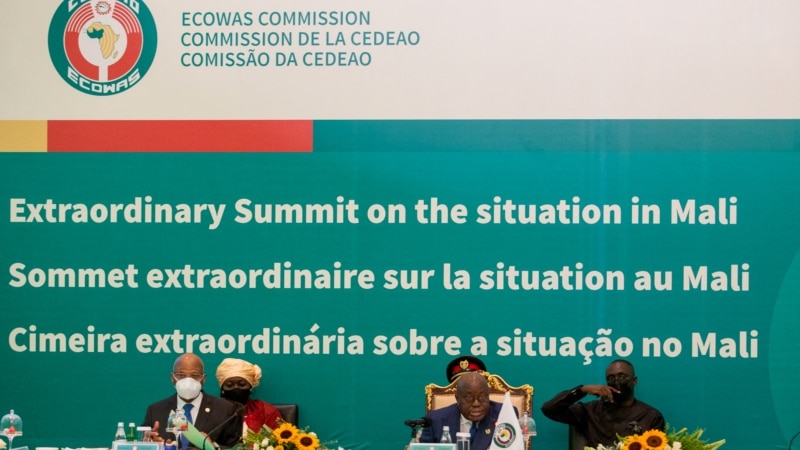
Mali has failed to meet debt payments of some $40 million in treasury bonds, blaming sanctions imposed on the country’s military junta by West African bloc ECOWAS. The Malian Economy and Finance Ministry released a statement on Tuesday saying that recently imposed sanctions have prevented them from paying debt on treasury bonds totaling almost $5 million. UMOA-Titres, the agency that manages public securities in the West African CFA franc zone, issued three separate statements to investors this week stating that Mali has missed several payments totaling $40 million. Both the Economic Community of West African States and the West African Economic and Monetary Union imposed sanctions on Mali last month after the country’s military junta, which seized power last year, postponed elections. The sanctions froze Mali’s assets held by the Senegal-based Central Bank of West African States (BCEAO). Modibo Mao Makalou is an economist and former economic advisor to the Malian presidency. Speaking from Bamako via messaging app, he said that because of the sanctions, not only will the Malian government be unable to pay the state’s debt, but it will also be unable to pay for internal operations. "If the state does not manage to refinance itself, not only with regard to the expenses for staff, but also energy, communication expenses, expenses for missions, including military operations — this will prevent the state from functioning on a daily basis," he said. The Central Bank of West African States serves the eight countries in West Africa that share a common currency, the West African CFA franc. Kobi Annan, a risk consultant based in Accra with Songhai Advisory, an economic and risk consultancy firm focused on sub-Saharan Africa, says that Mali has some reserves that will carry the country through the next few months. He says making Mali default on the debt is exactly how the West African sanctions are designed to work, to put pressure on the transitional authorities. “This would be fully expected; this is part of why it’s done that way, to make things more difficult for Mali," said Annan. "If you default on debt or if you don’t pay back debt, then you are deemed a higher risk, meaning that borrowing when you are able to becomes more expensive.” Annan and Makalou both assert that eventually, as the Malian government becomes less able to access or borrow money and as its reserves dwindle, social services are likely to be affected, bringing the effects of the financial sanctions against the state into the lives of ordinary Malians. Mali’s transitional military government has widespread support from the Malian population. Since being sanctioned, the government has not proposed a new election timeline, but has expressed a willingness to continue dialogue with ECOWAS. The ministry's statement added that debts would be paid as soon as restrictions are lifted.
Most Read